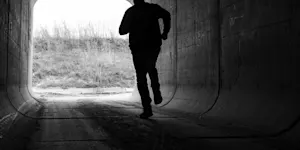What Makes This Word Tick
The word "draconian" is often used to describe measures or laws that are seen as excessively harsh or severe. It’s the kind of word that appears when someone wants to emphasize the extreme strictness or rigidity of rules. Despite its somewhat dark undertones, it definitely gets its point across!
If Draconian Were a Person…
Picture a stern headmaster from a classic British boarding school drama. Always impeccably dressed in a severe black suit, enforcing the rules to the letter. This person isn’t cruel for the sake of it—just deeply committed to order and discipline above all else.
How This Word Has Changed Over Time
“Draconian” originated from ancient Greece, named after Draco, an Athenian lawmaker known for implementing a code of law that prescribed extreme punishments. Over time, its usage spread far beyond legal systems to describe any measures considered excessively strict.
Old Sayings and Proverbs That Use Draconian
While there might not be direct proverbs with "draconian," you might come across its essence in phrases like "rule with an iron fist." The spirit of a stern, unyielding hand resonates through the ages.
Surprising Facts About Draconian
Draco’s legal codes were so severe that the penalty for even minor offenses was death! It’s no wonder his name became synonymous with harshness. Another surprising tidbit is that, originally, these laws were supported by the public because they were written and thus clear.
Out and About With This Word
In everyday language, "draconian" often appears in discussions about government measures, workplace rules, or community guidelines when they are seen as overly restrictive. It's a term politicians especially love to throw around when critiquing the opposition.
Pop Culture Moments Where Draconian Was Used
"Draconian" tends to pop up in critiques of totalitarian regimes in dystopian films or books, riding alongside other evocative terms like "Orwellian." It captures the oppressive atmosphere these stories often illustrate.
The Word in Literature
Authors like George Orwell and Aldous Huxley have conjured up draconian societies in their works, even if they didn’t explicitly use the word. It’s the perfect adjective for grim fictional worlds with strict societal rules.
Moments in History with Draconian
In the late 19th and early 20th centuries, labor laws and conditions in factories were often described as draconian, with workers facing brutal work hours and conditions. The Industrial Revolution saw both real-life draconian measures and reforms in reaction to them.
This Word Around the World
In other languages, the concept of "draconian" might be similarly expressed with words meaning "iron," "stone," or "strict," conveying similar imagery. In Italian, the word "draconiano" carries this idea with the same Greek-influenced roots.
Where Does It Come From?
The origins of "draconian" link back to Draco, the first recorded legislator of Athens in Ancient Greece, who codified such a severe set of laws around 621 BC. His legacy of ironbound laws is embedded in the word itself.
How People Misuse This Word
Sometimes people use "draconian" to describe anything mildly uncomfortable or inconvenient, diluting its true intensity. Remember, it’s meant for the truly harsh, not your neighbor shirking lawn care.
Words It’s Often Confused With
Drastic: While both suggest severity, "drastic" isn’t about harshness; it's more about significant change.
Despotic: This implies tyranny, but more about leadership style than about the severity of laws.
Tyrannical: Close in spirit, but more about absolute, oppressive power rather than strict measures.
Additional Synonyms and Antonyms
Synonyms include severe, harsh, and oppressive. Antonyms might be lenient, mild, or permissive—every bit as relaxed as draconian is strict.
Want to Try It Out in a Sentence?
The city council's decision to implement a curfew was criticized as draconian by residents who valued their evening strolls.
















